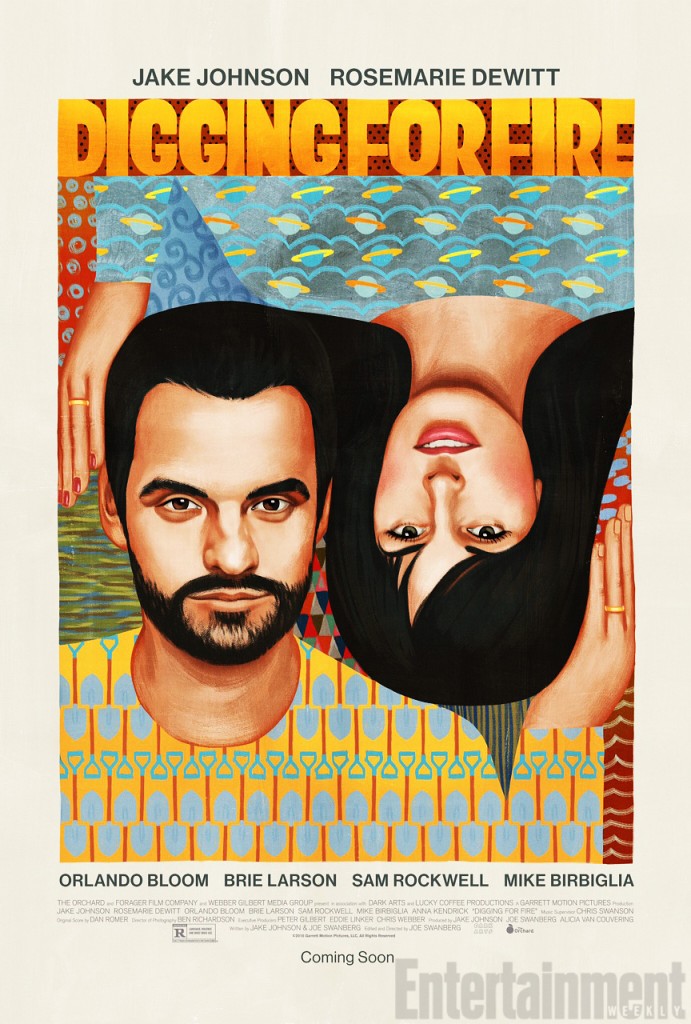Movie Breakdown: Digging For Fire (Noah)
The Impression:
I’ve never watched a Joe Swanberg flick before but, because Joe Swanberg is a prolific man who makes movies like other people use the bathroom, there’s a lot written about his films. The pros, the cons, the impressive amount of – it’s all there. So I feel like I’ve seen a Joe Swanberg picture before, but, you know, I haven’t.
The Reality:
Digging For Fire doesn’t really feel like a movie. It feels like an extension of a series of conversations. As if Joe Swanberg was sitting around his house at a party or at someone else’s house at someone else’s party and heard people talking and saw interactions and thought, “I could apply a little story here, bring a few cameras, you know, make a movie.” And that is, well, pretty much what you get. The film follows two parents (Jake Goldberg and the criminally underused Rosemarie DeWitt) who spend a weekend apart from each other. Not for any dramatic reason (the film doesn’t really play in the drama sandbox), just because, well, they want/need to do some other things. And separate from each other and their child, other things happen – bones are found, digging occurs, there’s near extra-marital affairs – but there isn’t a lot of momentum behind it. The film just sort of moseys along with its characters, listening to them talk about life, fucking things up, stumbling through this one semi-arbitrary moment of their life. It could be boring, and to be honest it is a little, but somehow Swanberg, without ever saying it out loud, makes the fact that this is just another arbitrary moment in this couples life. It isn’t dramatic, and it doesn’t throw its emotions in your face, but for a 33-year old reviewer with a long-time spouse and a child (okay, dog) something about the slow, ambling way the film progresses made it stick even harder. At the end, when the arguments have been resolved (or not) Swanberg suddenly tightens the knot of the film just a bit, pulls the threads so they come together in a moment of more traditional cinematic narrative and somehow, well, the rest of the film seems entirely intentional. That this almost Altman-like progression of scenes and characters and moments all tie together, maybe loosely, maybe a little disjointedly, but in the final seconds, with Dan Romer’s beautiful score swelling in the background, it feels like Swanberg knew what he was doing all along.
The Lesson:
I’ll watch more Swanberg. Especially if Dan Romer is manning the music.



